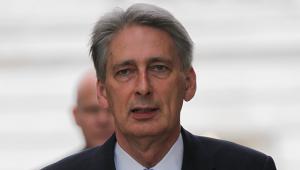George Osborne has made a social, political and economic calculation with his first Budget. He is gambling on the benefits appearing by the next election
We haven’t seen the worst yet. The Budget was just a first instalment of the painful adjustment that everyone – and especially the public sector – will suffer to eliminate the structural Budget deficit before the end of this Parliament.
Many readers of Public Finance will face a substantial squeeze in their take-home pay as a result of the two-year pay freeze. Some 1.7 million public servants earning less than £21,000 will be protected with a flat-rate pay rise of £250 in both these years. Of course, all public sector workers will also face the increase in VAT from next January, and the freeze in child benefit.
But the big decisions affecting the public sector have been deferred until the Spending Review on October 20. There are to be the two Hutton reviews: one by Will, the journalist, on fair pay in the public sector; and the second by John, the former Cabinet minister, into the £10bn gap (by 2015/16) between pension contributions and payments. The latter will ‘inform’ decisions in the Spending Review with a full report for Budget 2011.
The main focus will be on cuts in departmental spending over the next four years. The last government had projected cuts of £44bn by 2014/15, but the details were left to a post-election Spending Review. Chancellor George Osborne argues that because the structural deficit is worse than previously assumed, there will have to be further reductions of £17bn to departmental budgets by 2014/15.
With the NHS continuing to grow in real terms throughout the Parliament, international aid obligations being honoured, and schools and defence being partially protected, other departments will face an average real-terms cut of around 25% over four years. This is going well beyond talk of efficiency savings.
When you look at individual departments, you can see how drastic it will be. Some programmes, and agencies, will be eliminated, leading to significant job losses going well beyond natural wastage. This will have knock-on effects on newly qualified staff seeking jobs.
The implications are bound to be grim for millions not only working in the public services but also relying on local and other public services. Of course, many will protest against the cuts. But this is unlikely to achieve much.
The coalition — and it is very much a joint Conservative and Liberal Democrat operation — has made three calculations: economic, social and political.
Economically, Osborne believes that the public sector cuts will be offset by expansion of the private sector so that the economy grows steadily from next year onwards, with low inflation and a slow decline in unemployment.
Socially, Osborne was very strong on sharing the burden fairly to back up his claim of a ‘progressive’ Budget – such as the increase in the child element of the child tax credit, an earlier start to raising pensions in line with earnings rather than prices and a big rise in the starting threshold for income tax. So, unusually, there was much on the distributional impact of the measures to decrease child poverty and ensuring people at the bottom of the pay scale pay less proportionately than those at the top.
But these projections did not take into account the fact that many of the welfare cuts will not work through until nearer the end of the Parliament.
Politically, the calculation is much simpler: get the pain out of the way as soon as possible. Ministers know that the coalition will be unpopular ahead of the various elections next May, let alone any parliamentary by-elections. But they hope to point to not only growth by the end of the Parliament but also, in Osborne’s phrase, ‘everyone will share in the rewards when we succeed’.
Crudely, this means that the coalition expects to have eliminated the cyclically adjusted or structural deficit and have a small surplus in the final year of the Parliament. That could mean two tax-cutting Budgets, in 2014 and 2015, just before the election. A lot could – and probably will – go wrong before then, but it explains why both the Conservatives and the LibDems are so determined that the Parliament will last a full five years. That is as much a reflection of the risks in the short to medium term as the rewards for them, and for voters, in the long term.
Peter Riddell is shortly leaving The Times where he has been chief political commentator since the early 1990s. He will remain a senior fellow of the Institute for Government










